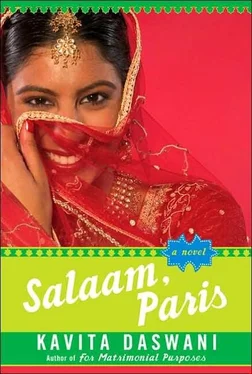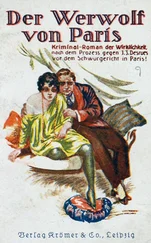New York, I decided, was like Mumbai, only cleaner. It didn’t have the rainy-day prettiness of Paris, but the people could be as gruff. Everything felt rushed, as if time was slipping away and everyone had to eat, move, talk, and think faster than if they were anywhere else.
At Pasha de Hautner’s office, it didn’t appear that anyone ever ate. All the girls I encountered, from the receptionist who sat behind a glossy wood desk to the flurry of females who glided down the carpeted corridors, were mere slivers of womanhood.
Stavros had insisted I wear one of the Viva outfits that he had hung ceremoniously in my small closet, and I had selected a pair of rose pink corduroy pants, a chocolate brown jersey top, and a thick belt with a pink buckle. We sat on a beige suede couch to wait while one of the dozens of assistants who seemed to appear and vanish within seconds said she would let her boss, who was in another casting, know that we were here.
“Probably with one of those stick-thin Muscovites,” Stavros said cynically. “Fashion needs curves again, which is why those girls should be out and you should be in,” he said, casting an eye toward my bosom. “You are the young girl ingénue and the sophisticated woman. You have it all.”
Forty minutes later, we were told that Pasha de Hautner was ready for us. We were led down a white-carpeted corridor and into a corner office that had full views of the city below, the people seventeen floors down looking like tiny alien creatures bobbing along the gray grid that criss-crossed the city.
“Don’t get too close, might give you vertigo,” said an unfamiliar voice behind me. I turned to look at the designer, who was staring straight at me, a slight smile lingering on the edges of a thin mouth. It was hard to tell how old he was; he could have been a tired forty or a young sixty or anywhere in between.
“Thanks for coming. Pasha de Hautner,” he said, extending a hand before turning to give Stavros a kiss on each cheek.
“How was St. Bart’s?” Stavros asked. “Nice tan.”
“The island is always lovely, but it’s just all those people,” he replied. “Is there no place in the world that is safe from the tourist on the package deal? I thought St. Bart’s would be the last refuge, but the bargain-hunter has managed to infiltrate that also. Of course, they’re run out of town after a couple of days-can’t bear the cost of a glass of wine with dinner-so I suspect eventually we’ll have the place back to ourselves, thank heavens.
“So, what do we have here?” he said, turning his attention back to me.
“This is Tanaya Shah, new to the scene,” Stavros replied. “She’s lived in Paris before this, India before that. I thought she had a beautiful and exotic new look that might be perfect for your fall collection runway.”
Pasha was ignoring Stavros and instead approached me directly. He gazed at me up and down, circling me as if I were a car in a showroom. When he stood behind me, I felt his eyes move from the nape of my neck down to my behind, and I was suddenly appreciative of the coverage that ultra-traditional Muslim women had on their bodies. At least they wouldn’t have to contend with this gawking and mental undressing.
“Well, let’s try her on for size, shall we?” he said to Stavros, a sly smile returning to his lips.
In another room, one of the girls handed over one of Pasha’s creations, and I gasped at the beauty of it: fluid chiffon pants and a long tunic, covered with a heftily embroidered waistcoat, which the girl told me had been made in India. I lifted it up to my face, the wooden beads and sparkly sequins pressing into my skin, just to see if I could detect a scent of my country, perhaps a micro-drop of sweat from one of the workers who had toiled on it or a whiff of dust from the factory in which it was made. I held up the flowing, extravagant ensemble, and said to the girl, smiling: “Now this I can wear.”
Pasha booked me for his next catwalk show based on seeing me in that outfit alone. But as a jubilant Stavros and I were about to leave Pasha’s office, he whispered something into Stavros’s ear. In the elevator, I pressed my agent to tell me what Pasha had said.
“He needs you to lose weight,” Stavros said, eyes on the floor. “Ten pounds at least. Oh, and the gray hair thing? He thinks it’s a gimmick; says it has to go, that you’ll look too different from the other girls on the runway.”

Stavros, I could tell, felt ashamed instructing me to lose weight, especially after his earlier speech to me, the one that celebrated my relatively curvaceous figure, at least compared to the reed-thin girls who he was convinced would hate me now.
“They will despise you because there are too many of them, and only one of you,” he said. “You are their worst nightmare.”
But while I had no real objection to losing weight, I put my foot down at Pasha’s insistence that I cover over the pearly strands in my hair. I told Stavros to tell Pasha as much, and that if he was inclined to drop me from his show because of something that made me different, I didn’t want to be part of it, not really believing the sudden strength of my convictions, but knowing that my Shah streak was far more important than a few minutes in the spotlight. I watched Stavros as he nervously dialed Pasha’s number and spoke to him hurriedly, mentioning something about how the streak was my good luck charm. Then he nodded, smiled in my direction, and replaced the receiver.
“You win,” he said. “But the weight still has to come off.”
I had three weeks left until the start of New York Fashion Week, and while I had only been booked for one show, Stavros said this was going to be my New York debut, the one that would open the doors for me to fame, fortune, and endorsement deals.
“And you should start having some fun, too,” he said. “What model has no fun?”
Almost as soon as Pasha had delivered his weight-loss directive, Stavros booked an appointment for me with a nutritionist who, in her sleek office on the Upper East Side, measured my body fat and wrote down everything I liked to eat: lentils and eggplant, chicken in butter sauce, and cardamom-infused rice.
“You don’t actually have a weight problem,” she said. “You’re exactly where you need to be. Your caloric intake is a little on the high side, but your metabolism rate is high. In short, you can afford to eat,” she said, smiling.
“It’s in the genes,” I replied, recalling the long, lean frames of my aunts, and their ability-like mine-to eat as they pleased without gaining an ounce.
“She’s making her catwalk debut,” Stavros interjected.
A frown appeared on the nutritionist’s face.
“Ah, one of those again. Always happens this time of year. I don’t like it, but I’ll help you, if it’s what you really want.” She looked over at me again, a glimmer of disapproval in her bespectacled eyes.
“Start by giving up your morning lassi, and we’ll go from there, OK?”
After stocking up on celery sticks and flax crackers, Stavros took me to meet with Marco, a personal trainer who had worked out with some of the best bodies in the business. He had close-cropped hair that reminded me of a military inductee, perfect bone structure, and muscles that bulged through a thin, light blue T-shirt. I felt self-conscious as he stared at me, asking me to stretch my arms out like a scarecrow, checking for muscle tone, telling me I didn’t have much of it.
“You’re not fat, and you have back fat. What’s that about?” he asked, looking unimpressed.
Читать дальше













